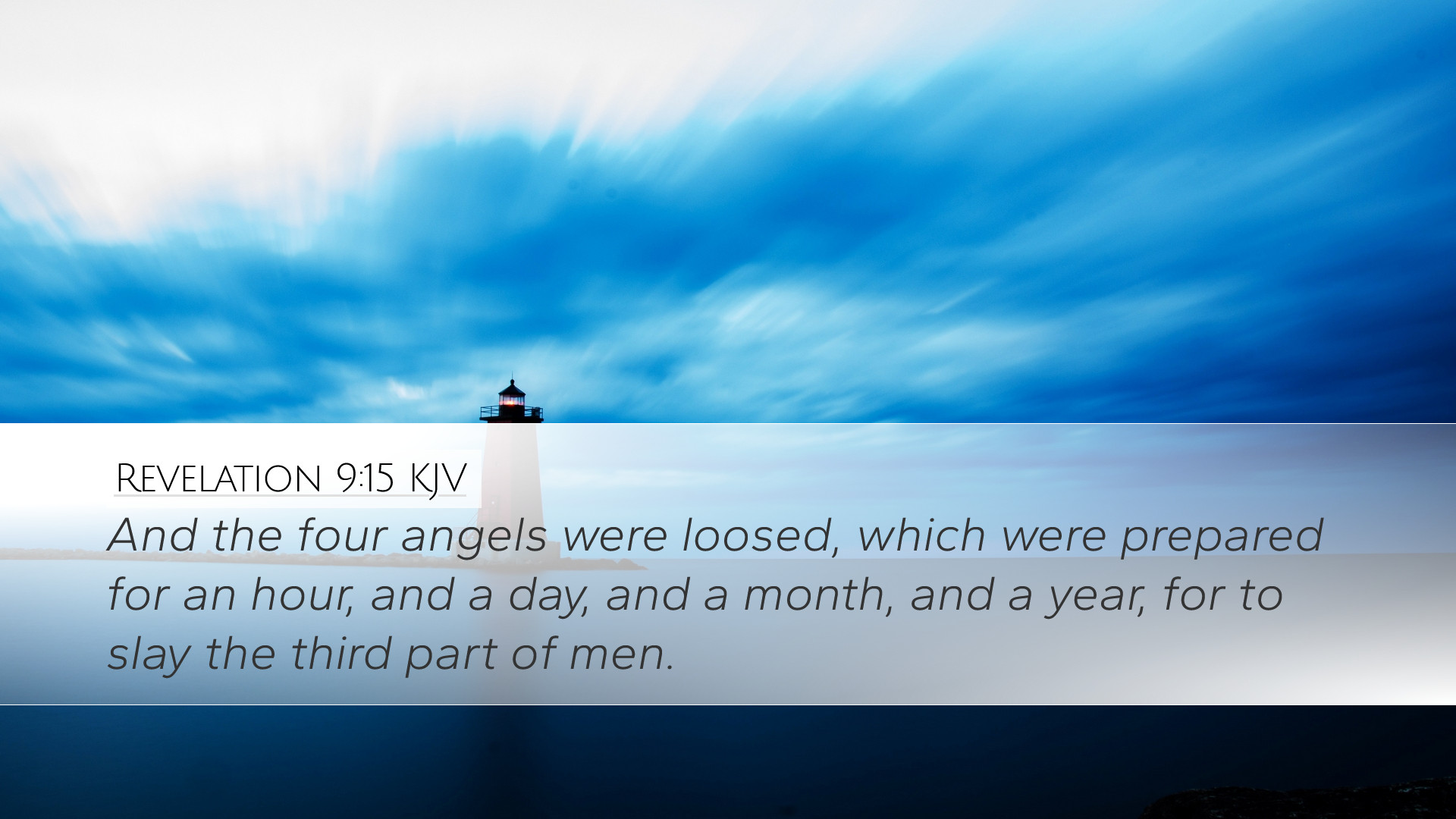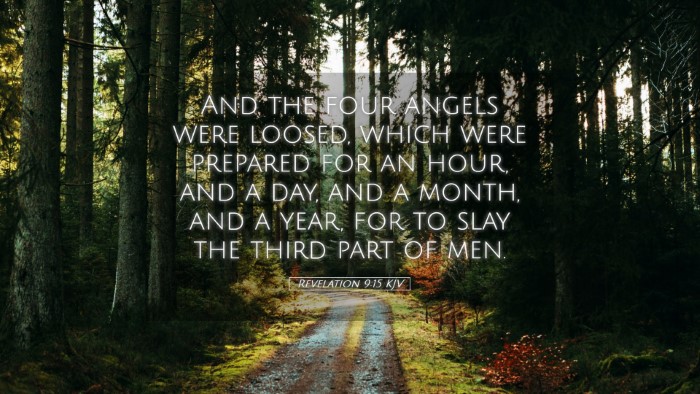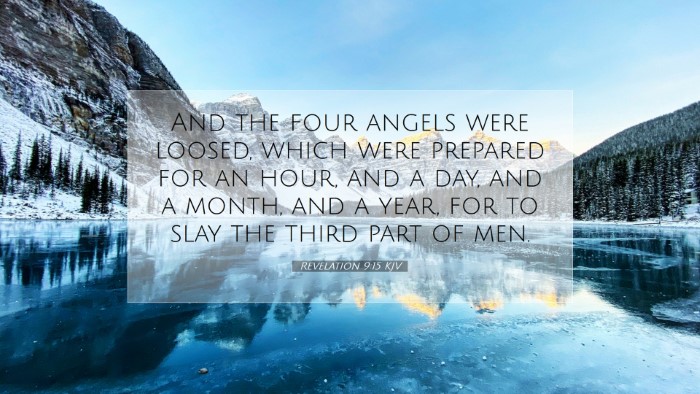Commentary on Revelation 9:15
Verse: "And the four angels were loosed, which were prepared for an hour, and a day, and a month, and a year, for to slay the third part of men."
Revelation 9:15 is a profound verse that encapsulates significant themes of divine sovereignty, judgment, and the unfolding of prophetic events. This commentary collects insights from several public domain resources, including those of Matthew Henry, Albert Barnes, and Adam Clarke, to provide a comprehensive understanding of this scripture.
Historical Context
The backdrop of the Book of Revelation is rooted in the first-century Church, facing persecution and oppression. The visions revealed to John are laden with symbolism, drawn from both the Old Testament and the cultural milieu of the time. In this particular verse, the four angels symbolize agents of divine judgment, poised to carry out a catastrophic event that is both timely and purposeful.
The Four Angels
Henry notes that these four angels represent powers appointed for a specific purpose. Their release indicates a significant shift in the narrative—an escalation of God's judgment upon the earth. "They are prepared for an hour, and a day, and a month, and a year," indicates a divinely calculated timing for their destructive mission.
Symbolism of Numbers
The detailed enumeration of time—an hour, a day, a month, and a year—carries significant symbolism. Barnes emphasizes that this precise timing reflects the omniscience of God. He asserts: “It signifies all time, denoting that everything is under the divine control.” The specific duration is intended to assure the faithful that God is sovereign over the events of history, including the judgments that will unfold.
Divine Judgment and Its Implications
The aim of the angels' release is to slay “the third part of men.” Clarke elaborates that this portion signifies a great loss of life, reminiscent of God's judgments throughout history, such as those seen in Egypt and during the days of Noah. The concept of a third part presents both a literal and symbolic interpretation—literal in the loss of life and symbolic in the proportion of mankind that strays from God.
Theological Insights
- God’s Sovereignty: The angels’ release showcases God's sovereign authority over all creation, affirming that no event occurs without His consent.
- Warning and Repentance: Each act of judgment serves as a call to repentance, urging humanity to turn back to God before it is too late, as emphasized by Henry.
- The Nature of Evil: The text reflects the reality of evil and its consequences in the world, with God's judgment acting as a restraint on further moral decay.
Pastoral Application
For pastors, this verse provides a sobering reminder of the gravity of sin and the importance of imparting messages of repentance and hope. The context of judgment must be balanced with the message of grace. As Clarke comments, the mercy of God is still intertwined with His justice, representing the ultimate goal of restoring creation.
Conclusion
Revelation 9:15 serves as both a warning and a call to reflect on the overarching narrative of God’s plan for humanity. The roles of the four angels illustrate God's preparedness to execute judgment at the appointed time, challenging believers to remain vigilant and steadfast in faith. The themes of divine judgment, human accountability, and the promise of mercy are intricately woven into this verse, urging all who study it to recognize the seriousness of God’s word and the urgency for repentance.


